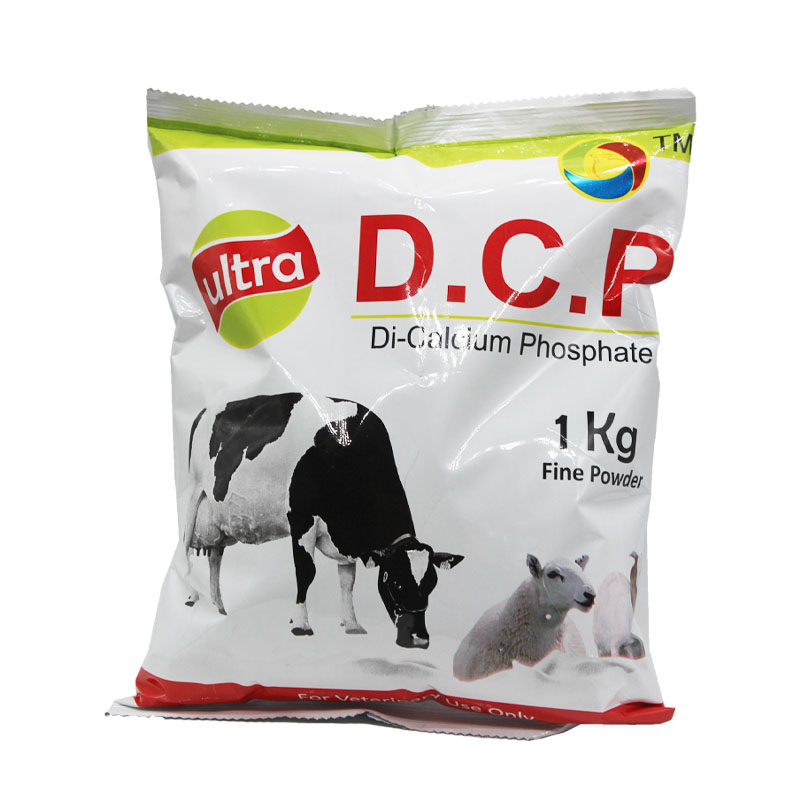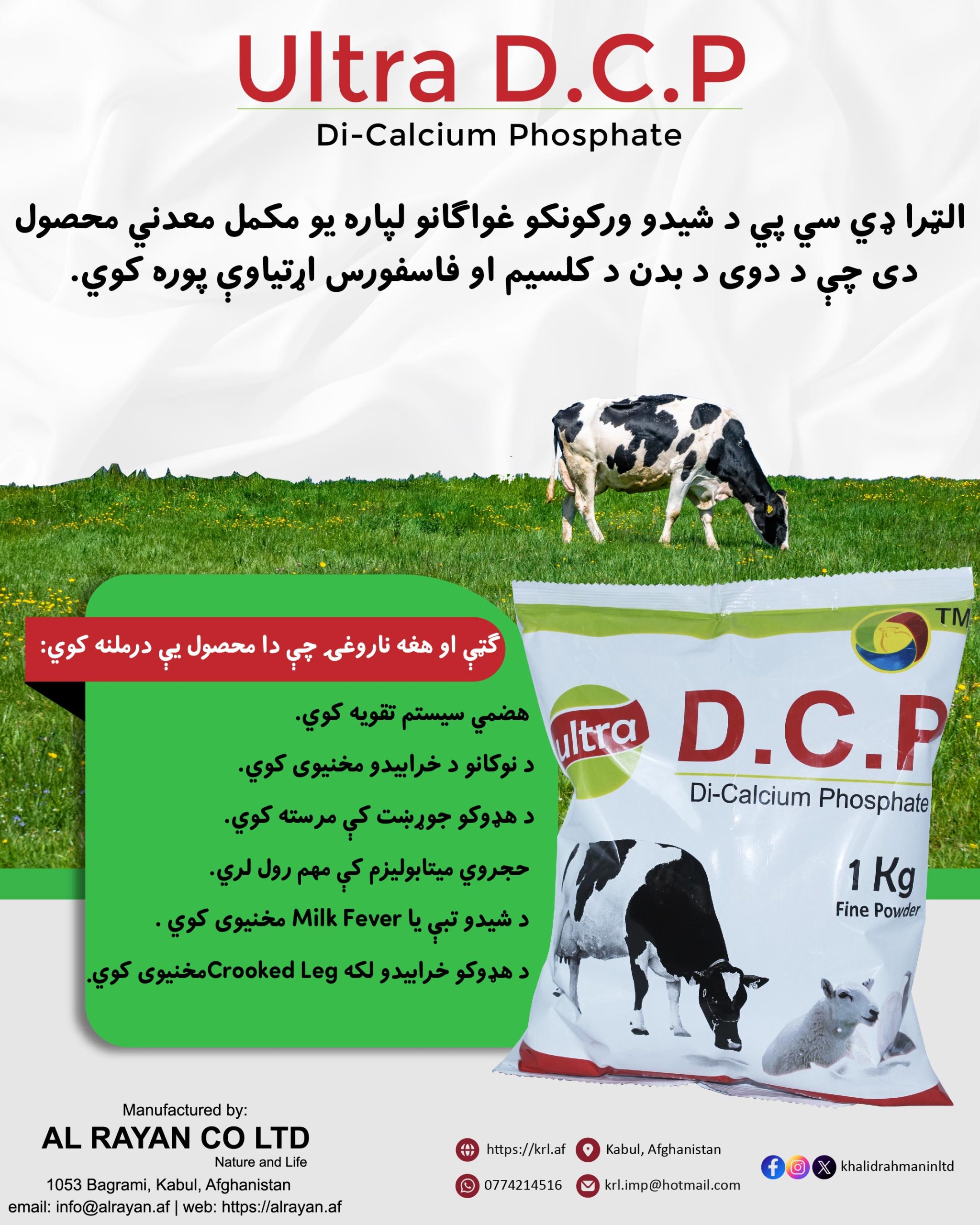
Ultra DCP is a high-quality Di-Calcium Phosphate (DCP) supplement formulated to meet the calcium and phosphorus needs of livestock, poultry, and dairy animals. These two essential minerals are critical for bone health, growth, reproduction, and milk production. By ensuring the correct mineral balance, Ultra DCP enhances animal performance and prevents deficiencies that can lead to poor growth, weak bones, or reproductive issues.
Composition (per 1 kg)
-
Calcium – 21%
-
Phosphorus – 18%
Bone & Skeletal Strength
Milk Yield & Lactation Support
Reproductive & Growth Performance
